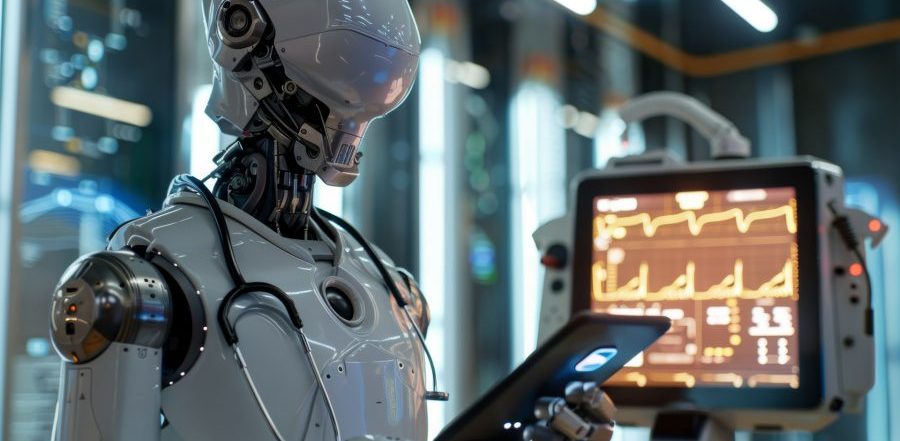It is no exaggeration to say that algorithms have long changed healthcare, but their role is expected to become even greater in the coming decades through so-called digitization.
Today, with the help of digital algorithms, one can analyze large amounts of patient data, interpret X-ray images, diagnose diseases, interact with patients and even suggest treatment plans much faster and with an empathetic response and quality that approaches or exceeds that achieved by humans. [1-4].
Today, they are used on a limited scale, and then they are mainly used as support tools. But with continued development, they may become more independent and therefore also require a new type of medical expertise.
A medical algorithmist will have a deep understanding of both the medical science and the technology behind the systems. They will need to understand the clinical implications of algorithmic decisions and be able to identify potential errors or biases that could impact patient care. Additionally, they must be familiar with regulations and ethical guidelines to ensure that these technologies are used in a safe and correct manner.
Just as we have today specialists in radiology or clinical pharmacology, algorithm specialists can become the experts who bear the medical responsibility to adapt, review and monitor the digital and AI-based tools used in healthcare.
Algorithmic scientists will need to work closely with computer scientists to develop and fine-tune algorithms that are both clinically useful and technologically robust. This bridge between medical science and technology ensures that algorithms used in healthcare are as efficient and reliable as possible.
There is also a strong ethical dimension to this future profession. As algorithms increasingly dominate patient care, the issue of responsibility is becoming increasingly important.
Most people probably think that a medical decision should be made by a clinically active physician. But how is the final decision made, if an AI model proves to be better than most doctors? What happens if you, as a physician, choose to go against the AI model’s recommendations? [5]?
Algorithmic scientists can play a central role in shaping how these issues are addressed and ensuring that care not only becomes more efficient but also maintains high ethical standards.
We are now on the cusp of a new era where algorithms and artificial intelligence will play a crucial role in medical decisions. Given the speed of development, it is not impossible that medical algorithms will be recognized as a medical specialty in its own right within the next 30 years.
- Algorithms – Automatic instructions; in its simplest form it can be text in a program.
- Machine learning – Algorithms that find patterns and relationships in large amounts of data, which they then use to improve their decisions and analyses.
- Artificial Intelligence (AI) – Algorithms that can learn from unstructured data as well as handle unexpected events.
Lakartidningen.se

“Extreme tv maven. Beer fanatic. Friendly bacon fan. Communicator. Wannabe travel expert.”









More Stories
Why Rare Earth Metals for Electric Cars Are Crucial for Modern Mobility
“We want to promote critical rules approach”
“A lot happened during the trip,” Jönköping County Council